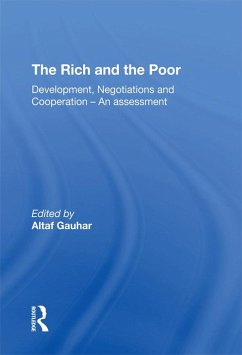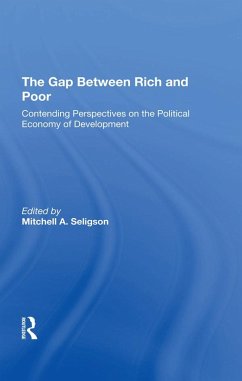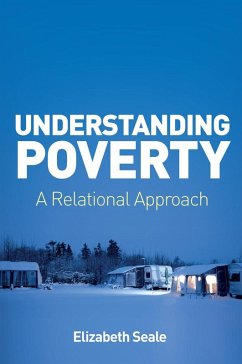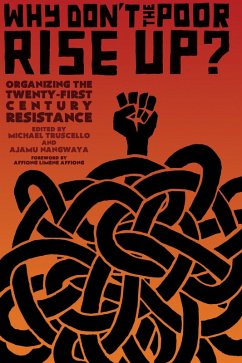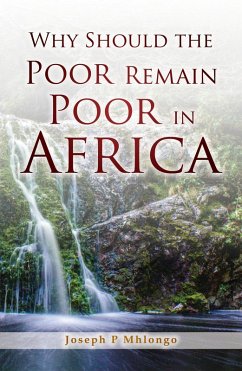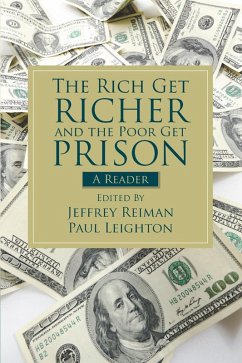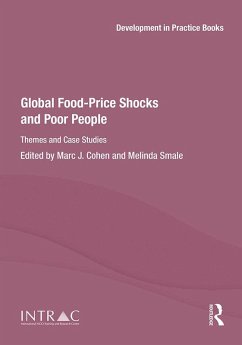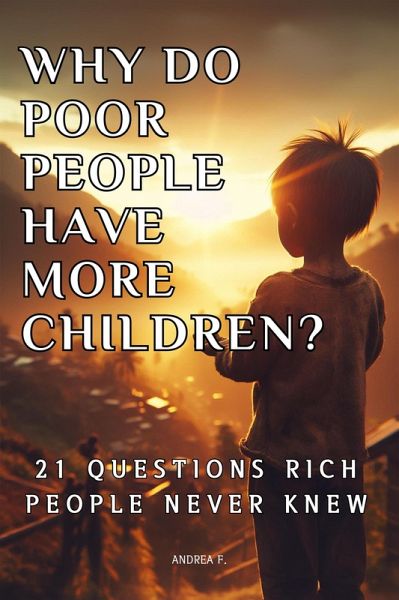
Why Do Poor People Have More Children? 21 Questions Rich People Never Knew (eBook, ePUB)

PAYBACK Punkte
0 °P sammeln!
"Why Do Poor People Have More Children? 21 Questions Rich People Never Knew" is a groundbreaking book that delves into the complex realities of poverty and inequality, focusing on the often-misunderstood topic of fertility rates among low-income populations. Through a series of 21 thought-provoking questions and well-researched answers, this book sheds light on the various factors that contribute to higher birth rates among the poor and challenges the misconceptions and stereotypes surrounding this sensitive issue.The book explores a wide range of topics related to poverty and fertility, inclu...
"Why Do Poor People Have More Children? 21 Questions Rich People Never Knew" is a groundbreaking book that delves into the complex realities of poverty and inequality, focusing on the often-misunderstood topic of fertility rates among low-income populations. Through a series of 21 thought-provoking questions and well-researched answers, this book sheds light on the various factors that contribute to higher birth rates among the poor and challenges the misconceptions and stereotypes surrounding this sensitive issue.
The book explores a wide range of topics related to poverty and fertility, including access to education and healthcare, family planning, cultural norms, and the impact of economic instability on reproductive choices. Each chapter provides an in-depth examination of a specific question, offering evidence-based research, expert insights, and real-life stories that illuminate the experiences and perspectives of those living in poverty.
One of the key strengths of "Why Do Poor People Have More Children?" is its ability to bridge the gap between the rich and the poor by addressing questions that affluent individuals may have never considered. The book takes a compassionate and empathetic approach, highlighting the structural and systemic factors that perpetuate inequality and shape the lives of those living in poverty.
Throughout the book, readers will gain a deeper understanding of issues such as the lack of access to comprehensive sex education and affordable contraception, the role of gender inequality in reproductive decision-making, the impact of child labor on family size, and the ways in which economic insecurity can influence fertility choices.
"Why Do Poor People Have More Children?" also explores the intersection of poverty and other forms of marginalization, such as race, ethnicity, and immigration status. The book examines how these intersecting identities can compound the challenges faced by low-income individuals and families, and highlights the need for solutions that address these overlapping forms of oppression.
One of the most powerful aspects of "Why Do Poor People Have More Children?" is its emphasis on amplifying the voices and experiences of those living in poverty. The book features firsthand accounts and personal stories from individuals and families who have navigated the complex realities of poverty and fertility, providing a rare and valuable perspective on this often-misunderstood topic.
Through these stories, readers will gain a greater sense of empathy and connection with those living in poverty, and a deeper appreciation for the resilience, strength, and agency that many individuals and communities demonstrate in the face of significant challenges.
"Why Do Poor People Have More Children?" is not just a book about understanding poverty and fertility, but also a call to action for creating a more just and equitable society. The book offers a range of practical solutions and policy recommendations for addressing the root causes of poverty and inequality, including increasing access to education and healthcare, promoting reproductive rights and choices, and investing in community-based programs and services.
Ultimately, "Why Do Poor People Have More Children?" is a must-read for anyone who wants to gain a deeper understanding of the complex realities of poverty and inequality, and to challenge the stereotypes and misconceptions that perpetuate harmful narratives about the poor. Whether you are a policymaker, social worker, educator, or simply someone who cares about creating a more just and compassionate world, this book will provide you with the knowledge, insights, and tools you need to make a difference.
The book explores a wide range of topics related to poverty and fertility, including access to education and healthcare, family planning, cultural norms, and the impact of economic instability on reproductive choices. Each chapter provides an in-depth examination of a specific question, offering evidence-based research, expert insights, and real-life stories that illuminate the experiences and perspectives of those living in poverty.
One of the key strengths of "Why Do Poor People Have More Children?" is its ability to bridge the gap between the rich and the poor by addressing questions that affluent individuals may have never considered. The book takes a compassionate and empathetic approach, highlighting the structural and systemic factors that perpetuate inequality and shape the lives of those living in poverty.
Throughout the book, readers will gain a deeper understanding of issues such as the lack of access to comprehensive sex education and affordable contraception, the role of gender inequality in reproductive decision-making, the impact of child labor on family size, and the ways in which economic insecurity can influence fertility choices.
"Why Do Poor People Have More Children?" also explores the intersection of poverty and other forms of marginalization, such as race, ethnicity, and immigration status. The book examines how these intersecting identities can compound the challenges faced by low-income individuals and families, and highlights the need for solutions that address these overlapping forms of oppression.
One of the most powerful aspects of "Why Do Poor People Have More Children?" is its emphasis on amplifying the voices and experiences of those living in poverty. The book features firsthand accounts and personal stories from individuals and families who have navigated the complex realities of poverty and fertility, providing a rare and valuable perspective on this often-misunderstood topic.
Through these stories, readers will gain a greater sense of empathy and connection with those living in poverty, and a deeper appreciation for the resilience, strength, and agency that many individuals and communities demonstrate in the face of significant challenges.
"Why Do Poor People Have More Children?" is not just a book about understanding poverty and fertility, but also a call to action for creating a more just and equitable society. The book offers a range of practical solutions and policy recommendations for addressing the root causes of poverty and inequality, including increasing access to education and healthcare, promoting reproductive rights and choices, and investing in community-based programs and services.
Ultimately, "Why Do Poor People Have More Children?" is a must-read for anyone who wants to gain a deeper understanding of the complex realities of poverty and inequality, and to challenge the stereotypes and misconceptions that perpetuate harmful narratives about the poor. Whether you are a policymaker, social worker, educator, or simply someone who cares about creating a more just and compassionate world, this book will provide you with the knowledge, insights, and tools you need to make a difference.
Dieser Download kann aus rechtlichen Gründen nur mit Rechnungsadresse in A, B, CY, CZ, D, DK, EW, E, FIN, F, GR, H, IRL, I, LT, L, LR, M, NL, PL, P, R, S, SLO, SK ausgeliefert werden.




